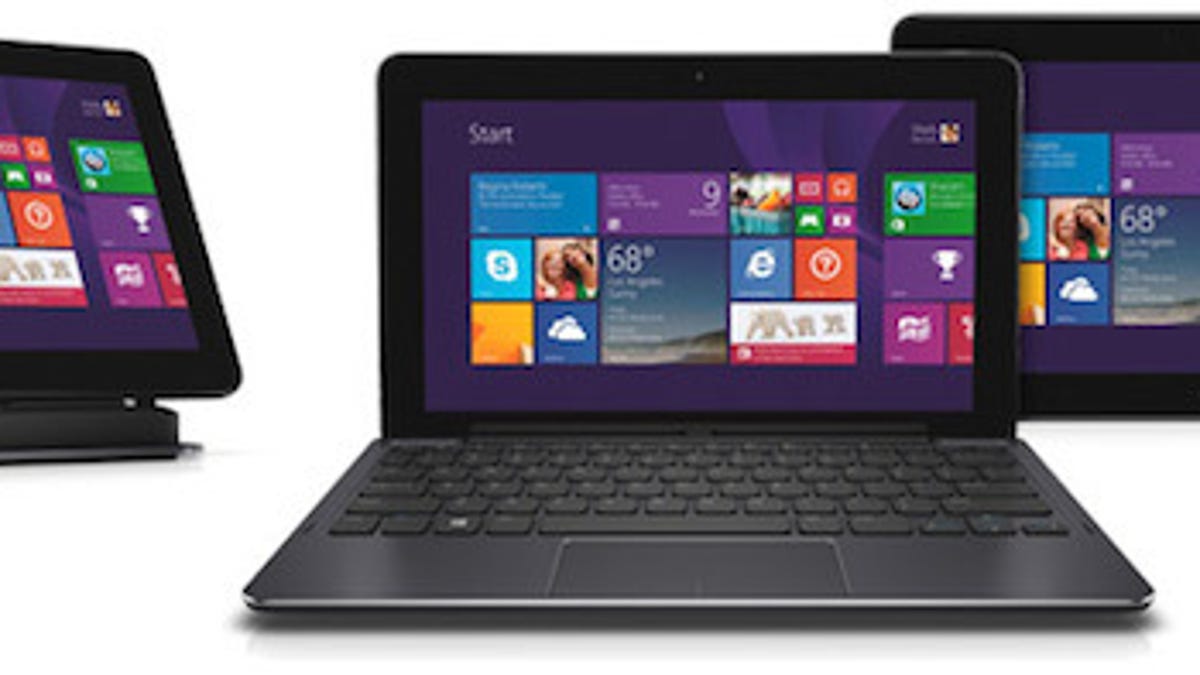Finally, here come the 64-bit Windows 8.1 tablets
You may not have noticed, but most Windows 8.1 tablets run in 32-bit mode despite having a 64-bit processor. That's about to change.

At least one major PC maker is expected to show an Intel "Bay Trail" tablet running 64-bit Windows 8.1 at Mobile World Congress, according to a source familiar with upcoming plans for those tablets.
Hewlett-Packard, Dell, Lenovo, and Samsung are some of the most prominent PC makers to offer Windows 8.1 tablets running on Intel's Bay Trail chip. To date, Windows tablets based on Intel's newest -- and redesigned -- quad-core Atom processor have run in 32-bit mode.
One of the most oft-cited reasons for going 64-bit is to address more memory, beyond the 4GB limit that's typical for 32-bit applications. But there are other reasons too.
"The pressure for 64-bit, even in tablets that might not have 4GB of DRAM, is pretty strong because IT organizations want to standardize on 64-bit images and 64-bit apps," said Nathan Brookwood, principal analyst at Insight 64. "And they can't do that with (the current) Bay Trail tablets."
Brookwood added that the "next wave" of Bay Trail tablets will include those that are more targeted at business customers.
"Intel tended to characterize the first generation of (32-bit) Bay Trail tablets as consumer-oriented," he said.
Dell will roll out updated Venue tablets for 64-bit. "Dell will offer 64-bit OS support for its Venue 8 Pro and Venue 11 Pro tablets running Bay Trail (Atom) later this year," a Dell spokesperson told CNET.
Though two of Dell's Venue 11 Pro models support 64-bit Windows, this is only possible by squeezing in a Haswell processor -- more typically used in laptops -- into a chassis that's thicker and heavier than the Venue 11 Pro model using a Bay Trail chip. This is similar to what Microsoft has done with the laptop-like Surface Pro 2.
The handful of Haswell-based tablets on the market tend to be priced hundreds of dollars more than the more numerous Bay Trail tablets. For example, Dell's Bay Trail-based Venue 11 Pro starts at $500. Its Haswell-based models start at $800.
Microsoft also expects 64-bit tablets running on top of Bay Trail. "In the coming months, there will be Windows 8.1 devices running 64 bit on Atom," Microsoft said to CNET in a statement.
And why the long wait for 64-bit Windows on Atom? It's not entirely clear, but Brookwood knows one of the reasons.
"Sixty-four-bit connected standby drivers were prioritized toward the end of the list last year with other things that were going inside Intel and Microsoft. That was the main sticking point," he said.
"A tablet without connected standby has some pretty awful consequences on battery life," he added.
The race to 64-bit in mobile devices has taken on new urgency after Apple announced the 64-bit A7 processor powering its iPhone 5S, iPad Air, and iPad Mini Retina last year.
According to Brookwood, Intel also made the comment at the company's analyst day last year about supporting 64-bit on Windows and Android.
One of the burning questions, he said, is: "Who's going to be the first 64-bit Android platform?"

